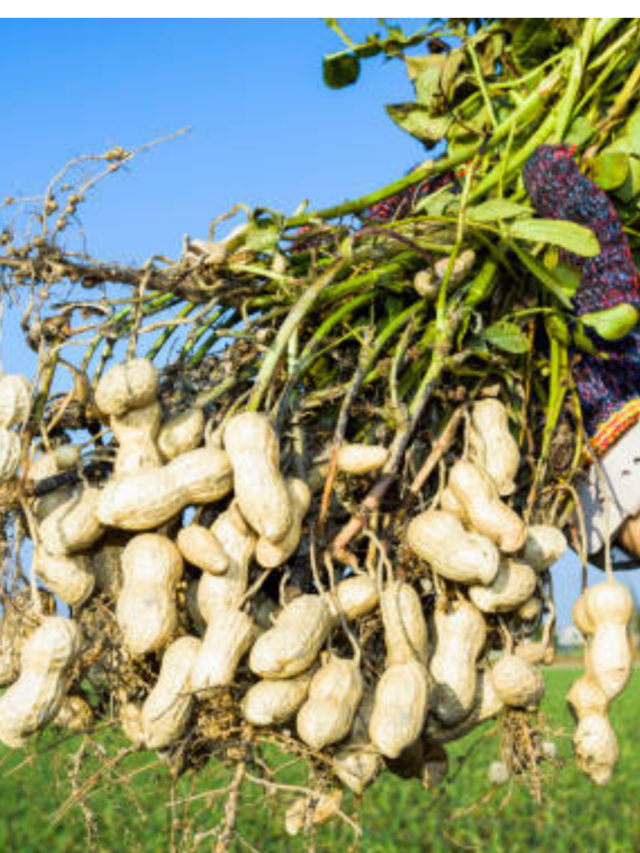
Israel is a world leader in agricultural technology innovation and has made significant contributions to the global agricultural industry. Here are some examples of Israeli agricultural technologies and their impact:
1.Drip Irrigation: Drip irrigation is an efficient and precise method of watering crops that was developed in Israel in the 1960s. It has revolutionized the way farmers irrigate their crops, and it is now used in over 150 countries. Drip irrigation has significantly reduced water usage, improved crop yields, and allowed farmers to grow crops in areas that were previously unsuitable for agriculture.
2.Biological Pest Control: Israel has developed many innovative techniques for controlling pests and diseases without using harmful chemicals. One of these techniques is biological control, which involves using natural predators, such as insects, to control pests. This method has reduced the use of pesticides, which can be harmful to the environment and human health.
3.Hydroponics: Hydroponics is a method of growing plants without soil, using nutrient-rich water instead. Israel has been at the forefront of hydroponic technology development, making it possible to grow crops in arid and urban environments. This technology has the potential to revolutionize the way we grow food, as it requires less water and space than traditional farming methods.
4.Desert Agriculture: Israel has developed many techniques for farming in desert environments, where water and resources are scarce. For example, they have developed drought-resistant crops, such as cherry tomatoes and peppers, and have implemented techniques for capturing and storing rainwater.
5.Precision Agriculture: Israel is a leader in precision agriculture, which involves using sensors, data analytics, and other technologies to optimize farming practices. This technology allows farmers to precisely monitor and control factors such as water usage, fertilization, and pest control, resulting in higher yields and reduced costs.
6.Aquaculture: Israel has also made significant strides in the field of aquaculture, or fish farming. They have developed advanced techniques for raising fish in land-based systems, including recirculating aquaculture systems and biofloc systems. These systems are more environmentally friendly than traditional fish farming methods and allow for more efficient use of resources.
Overall, Israel’s agricultural technologies have had a significant impact on global agriculture, helping to improve yields, reduce environmental damage, and increase food security.
1.Drip Irrigation

Drip irrigation is one of the most significant contributions that Israel has made to the global agricultural industry. Drip irrigation is an efficient and precise method of watering crops, which was developed in Israel in the 1960s.
The principle behind drip irrigation is to deliver water directly to the root zone of the plants, drop by drop, through a network of pipes and emitters. This ensures that the plants receive the exact amount of water they need, with minimal waste due to evaporation or runoff.
Drip irrigation has several advantages over other irrigation methods, such as flood irrigation or sprinkler irrigation. Firstly, it reduces water usage by up to 50%, making it an efficient and sustainable method of irrigation. Secondly, it can improve crop yields and quality, as the plants receive a consistent supply of water and nutrients. Finally, drip irrigation is suitable for a wide range of crops, from fruit trees and vegetables to row crops and flowers.
Israel is a global leader in drip irrigation technology, and several Israeli companies have developed innovative solutions for drip irrigation. For example, Netafim, an Israeli company, is the world’s largest manufacturer of drip irrigation systems. Netafim’s systems are used in over 110 countries and have helped farmers worldwide to increase crop yields, save water and reduce costs.
Overall, drip irrigation is an essential technology that has had a significant impact on global agriculture, and Israel’s contributions to this field have been significant.
2.Biological Pest Control

Biological pest control is another area where Israel has made significant contributions to the global agricultural industry. Biological pest control involves using natural enemies of pests, such as insects or microorganisms, to control their populations instead of using synthetic chemicals.
Israel has developed many innovative techniques for biological pest control, which has reduced the use of synthetic pesticides, which can have harmful effects on the environment and human health. Israeli scientists have developed various natural predators and pathogens to control pests, such as parasitic wasps, predatory mites, and Bacillus thuringiensis (BT), a soil-dwelling bacterium that is toxic to certain pests.
One notable example of Israeli innovation in biological pest control is the use of pheromone traps. Pheromones are chemical signals produced by insects to attract mates. Israeli researchers have developed pheromone traps that use synthetic versions of these chemicals to lure pests, such as fruit flies or moths, into traps, where they are caught and prevented from damaging crops.
Another example of Israeli innovation in this field is the use of beneficial bacteria, such as Bacillus subtilis or Trichoderma, to protect crops from fungal diseases. These bacteria can stimulate the plant’s natural defenses, which helps to prevent or reduce disease outbreaks.
Overall, Israeli agricultural technologies in biological pest control have helped farmers worldwide to reduce their use of synthetic pesticides, which can be harmful to the environment and human health, while still protecting their crops from pests and diseases. This has contributed to more sustainable agriculture practices, which are essential for ensuring the long-term health of our planet.
3.Hydroponics

Hydroponics is another area where Israel has made significant contributions to the global agricultural industry. Hydroponics is a method of growing plants without soil, using nutrient-rich water instead. This technique has several advantages over traditional farming methods, including increased yields, reduced water usage, and improved crop quality.
Israel’s arid climate and limited water resources have driven the development of hydroponic technology, making it possible to grow crops in areas where traditional farming methods are not feasible. Israeli researchers have developed various hydroponic systems, including vertical farming and nutrient film techniques, which have allowed farmers to produce large quantities of crops in small spaces, such as urban environments.
One notable example of Israeli innovation in hydroponics is the use of recycled wastewater for crop production. Israel has been a leader in the field of wastewater treatment and reuse, and many Israeli hydroponic farms use recycled wastewater as a source of irrigation water. This has reduced the pressure on freshwater resources and improved the sustainability of agriculture in the region.
Another example of Israeli innovation in hydroponics is the use of computerized control systems to monitor and regulate plant growth. These systems use sensors and algorithms to adjust environmental factors such as temperature, humidity, and light levels, to optimize plant growth and yield.
Overall, Israeli agricultural technologies in hydroponics have helped to increase food production in arid regions and improve the sustainability of agriculture. This has important implications for the future of global food security, as the world’s population continues to grow, and resources become increasingly scarce.
4.Desert Agriculture

Desert agriculture is one of the most significant challenges facing agriculture globally, and Israel has developed several innovative solutions to address this issue. Israel’s arid climate and limited water resources have driven the development of technologies that allow for agriculture in desert regions.
One of the most important innovations in desert agriculture from Israel is the development of drought-resistant crops. Israeli scientists have bred and developed crops that can withstand drought conditions, such as tomatoes, peppers, and melons, which can be grown in desert regions. These crops require less water and can tolerate high temperatures and arid conditions, making them ideal for desert agriculture.
Another important technology developed by Israel is the use of precision irrigation systems. These systems, such as drip irrigation, allow farmers to deliver water directly to the plant’s root zone, reducing water usage and increasing crop yields. This is especially important in desert regions, where water resources are limited and conservation is critical.
In addition to developing drought-resistant crops and precision irrigation systems, Israel has also developed other innovative technologies for desert agriculture, such as agroforestry, where crops are grown alongside trees that provide shade and improve soil quality, and desert fish farming, where fish are raised in closed-loop systems that conserve water and nutrients.
Overall, Israeli agricultural technologies in desert agriculture have made significant contributions to the global agricultural industry. These technologies have allowed farmers to grow crops in regions where agriculture was previously not possible, and they have helped to improve the sustainability of agriculture in arid regions.
5.Precision Agriculture

Precision agriculture is an area where Israel has made significant contributions to the global agricultural industry. Precision agriculture involves using technology and data analysis to optimize crop production while minimizing resource use, such as water, fertilizer, and pesticides.
One of the most significant innovations in precision agriculture from Israel is the use of sensors and data analytics to monitor and manage crop growth. Israeli companies have developed various sensors, such as soil moisture sensors, weather sensors, and aerial imagery, which can be used to collect data on crop growth, soil conditions, and weather patterns. This data is then analyzed to optimize irrigation, fertilization, and pest management, reducing waste and improving crop yields.
Another important technology developed by Israel is the use of unmanned aerial vehicles (UAVs), or drones, for precision agriculture. These drones can be equipped with various sensors and cameras, allowing farmers to collect data on crop growth and identify areas that require attention, such as areas of water stress or pest infestations. This information can then be used to make more informed decisions about crop management, reducing waste and increasing yields.
In addition to sensors and UAVs, Israeli companies have also developed various software platforms that integrate data from multiple sources to provide farmers with real-time insights into crop growth and production. These platforms use machine learning algorithms to analyze data and provide recommendations on irrigation, fertilization, and pest management, helping farmers to optimize production and reduce waste.
Overall, Israeli agricultural technologies in precision agriculture have helped farmers worldwide to optimize production, reduce waste, and increase profitability. These technologies have important implications for the future of agriculture, as the world’s population continues to grow, and resources become increasingly scarce.
6.Aquaculture Agriculture

Aquaculture is another area where Israel has made significant contributions to the global agricultural industry. Israel’s location on the Mediterranean coast has driven the development of aquaculture technologies that allow for sustainable and efficient fish farming.
One of the most important innovations in Israeli aquaculture is the use of recirculating aquaculture systems (RAS). RAS allow for fish to be raised in closed-loop systems that conserve water and minimize waste. The systems use a series of filters and treatment processes to maintain water quality, creating an environment that is optimal for fish growth and health. RAS also reduce the risk of disease transmission and minimize the impact of fish farming on the environment.
Another important technology developed by Israel in aquaculture is the use of advanced feed formulations. Israeli companies have developed specialized feed formulations that provide optimal nutrition for fish, promoting growth and health while reducing waste. These feeds contain high-quality protein sources, such as fish meal and soybean meal, as well as essential vitamins and minerals that promote fish health and immune function.
In addition to RAS and specialized feed formulations, Israeli companies have also developed various technologies for fish breeding, such as selective breeding and genetic engineering. These technologies allow farmers to produce fish with desirable traits, such as faster growth, improved disease resistance, and enhanced product quality.
Overall, Israeli agricultural technologies in aquaculture have helped to improve the sustainability of fish farming and increase global food production. These technologies have allowed farmers to raise fish in a more efficient and environmentally friendly manner, reducing the impact of aquaculture on natural ecosystems and increasing the availability of high-quality fish for human consumption.
Inpotance Israel advantages irrigation methods
Israel is a world leader in agricultural irrigation technologies, and its expertise in this area has been honed over decades of dealing with arid and semi-arid climates. Israel’s innovative irrigation methods offer several advantages over traditional irrigation methods, including:

1.Water Conservation: Israel’s irrigation methods are designed to maximize water conservation. For example, drip irrigation systems deliver water directly to the plant’s roots, minimizing water loss due to evaporation or runoff. This method can reduce water usage by up to 50% compared to traditional surface irrigation methods.
2.Improved Crop Yields: Israel’s irrigation methods are optimized to improve crop yields. By delivering water and nutrients directly to the plant’s roots, drip irrigation systems help to ensure that crops receive the exact amount of water and nutrients they need to grow and produce fruit.
3.Reduced Labor Costs: Drip irrigation systems require less labor than traditional irrigation methods, as they can be automated and require less maintenance. This can reduce labor costs and increase productivity.
4.Improved Soil Health: Israel’s irrigation methods can also help to improve soil health. By delivering water and nutrients directly to the plant’s roots, drip irrigation systems help to avoid over-watering and waterlogging, which can lead to soil degradation.
5.Reduced Fertilizer Use: Israel’s irrigation methods can also reduce the amount of fertilizer needed for crops. By delivering water and nutrients directly to the plant’s roots, drip irrigation systems help to ensure that fertilizers are used more efficiently and not wasted through runoff.
Overall, Israel’s innovative irrigation methods offer several advantages over traditional irrigation methods, including improved water conservation, crop yields, labor costs, soil health, and reduced fertilizer use. These methods are highly applicable in arid and semi-arid regions where water resources are scarce and must be used efficiently.
Conclusion
In conclusion, Israeli agricultural technologies have had a significant global impact, particularly in the areas of water management, precision agriculture, and biotechnology. Israel’s arid climate and limited natural resources have led to the development of innovative agricultural practices that prioritize efficiency, sustainability, and resilience.
Israeli innovations such as drip irrigation, desalination, and precision agriculture techniques have enabled farmers around the world to produce more food with less water and land, while also reducing the environmental impact of agriculture. Additionally, Israeli biotech companies have developed cutting-edge technologies for crop protection, genetic engineering, and biofuels that are revolutionizing the field of agriculture.
Israel’s leadership in agricultural innovation is due to a combination of factors, including a culture of entrepreneurship and innovation, strong government support for research and development, and collaboration between academic institutions, the private sector, and government agencies. As the global population continues to grow and climate change poses new challenges for agriculture, Israeli technologies are likely to play an increasingly important role in feeding the world sustainably.
Overall, the impact of Israeli agricultural technologies on global food security, environmental sustainability, and economic development cannot be overstated. By continuing to invest in research and development, foster innovation, and collaborate with partners around the world, Israel can continue to be a leader in the field of agricultural technology and contribute to a more sustainable and equitable future for all.









